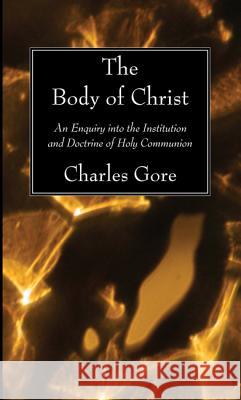A Pathway of Interpretation: The Old Testament for Pastors and Students » książka
A Pathway of Interpretation: The Old Testament for Pastors and Students
ISBN-13: 9781556355899 / Angielski / Miękka / 2009 / 180 str.
A Pathway of Interpretation: The Old Testament for Pastors and Students
ISBN-13: 9781556355899 / Angielski / Miękka / 2009 / 180 str.
(netto: 91,75 VAT: 5%)
Najniższa cena z 30 dni: 95,03
ok. 16-18 dni roboczych.
Darmowa dostawa!
Description: Writing with the pastor and student in mind, Walter Brueggemann provides guidance for interpreting Old Testament texts. He offers both advice for the interpreter as well as examples of working with different sorts of passages: from narratives, prophecies, and Psalms. He also demonstrates how to work thematically, drawing together threads from different traditions. His goal is to work through the rhetoric of these passages to reach toward theological interpretation. These investigations indicate Brueggemann's conviction that the process of moving from text to interpretive outcome is an artistic enterprise that can be learned and practiced. Endorsements: ""One of the best and most esteemed interpreters of Scripture shows here how he does it. A 'how-to' book with wonderful examples, it is vintage Brueggemann: incisive, penetrating, provocative, and always seeking to uncover the cutting edge of the text. He cares as much about pastoral responsibility as interpretive method. In fact, he doesn't think you can separate them-one of the many gifts of this compelling and practical book."" -Patrick D. Miller, author of The Religion of Ancient Israel ""We have become accustomed to the insightful reflections and the critical theological thinking of many contemporary biblical scholars. However, seldom has an author taken us step-by-step through the actual progression of that thought. This is precisely what Walter Brueggemann does in this book. Insisting that all believers, not merely scholars, should be able to critically read the Bible, he offers a modified, though still critical interpretive approach, that shows us how we might do it ourselves."" -Dianne Bergant, CSA author of Scripture: History and Interpretation ""This is the book that those of us who have studied with Walter Brueggemann have been waiting for. Here is the teacher we have known in class: telling us how he has come to read scripture as he does and showing us how he does it. I have been using this method of interpreting scripture with my congregation for the past decade. Together we have found that Brueggemann's three-step interpretive strategy opens us up to the biblical texts so that they speak to us in powerful new ways. What a wonderful gift this book is to the church."" -Edwin Searcy, University Hill Congregation, Vancouver, BC About the Contributor(s): Walter Brueggemann is William Marcellus McPheeters Professor of Old Testament Emeritus at Columbia Theological Seminary, Decatur, Georgia. He is the author of numerous works, including Praying the Psalms (2nd ed., Cascade Books, 2007), Theology of the Old Testament, and Prophetic Imagination.
Description:Writing with the pastor and student in mind, Walter Brueggemann provides guidance for interpreting Old Testament texts. He offers both advice for the interpreter as well as examples of working with different sorts of passages: from narratives, prophecies, and Psalms. He also demonstrates how to work thematically, drawing together threads from different traditions. His goal is to work through the rhetoric of these passages to reach toward theological interpretation. These investigations indicate Brueggemanns conviction that the process of moving from text to interpretive outcome is an artistic enterprise that can be learned and practiced.Endorsements:""One of the best and most esteemed interpreters of Scripture shows here how he does it. A how-to book with wonderful examples, it is vintage Brueggemann: incisive, penetrating, provocative, and always seeking to uncover the cutting edge of the text. He cares as much about pastoral responsibility as interpretive method. In fact, he doesnt think you can separate them-one of the many gifts of this compelling and practical book."" -Patrick D. Miller, author of The Religion of Ancient Israel""We have become accustomed to the insightful reflections and the critical theological thinking of many contemporary biblical scholars. However, seldom has an author taken us step-by-step through the actual progression of that thought. This is precisely what Walter Brueggemann does in this book. Insisting that all believers, not merely scholars, should be able to critically read the Bible, he offers a modified, though still critical interpretive approach, that shows us how we might do it ourselves.""-Dianne Bergant, CSA author of Scripture: History and Interpretation""This is the book that those of us who have studied with Walter Brueggemann have been waiting for. Here is the teacher we have known in class: telling us how he has come to read scripture as he does and showing us how he does it. I have been using this method of interpreting scripture with my congregation for the past decade. Together we have found that Brueggemanns three-step interpretive strategy opens us up to the biblical texts so that they speak to us in powerful new ways. What a wonderful gift this book is to the church.""-Edwin Searcy, University Hill Congregation, Vancouver, BCAbout the Contributor(s):Walter Brueggemann is William Marcellus McPheeters Professor of Old Testament Emeritus at Columbia Theological Seminary, Decatur, Georgia. He is the author of numerous works, including Praying the Psalms (2nd ed., Cascade Books, 2007), Theology of the Old Testament, and Prophetic Imagination.











